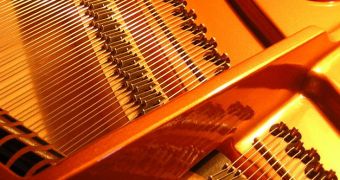In the case of musicians, healthcare experts have known for a long time that prolonged exposure to loud noises can have severe consequences on these individuals' hearing. But, until now, most experts believed that the correlation was only true in the case of those playing modern music, the type that uses instrument amplifiers and large PA systems to get sounds across. But a recent investigation has just demonstrated that this is false, and that people playing classical music, such as various piano-centered pieces, can suffer from the same type of damages, AlphaGalileo reports. One of the most devastating things to a musician is for he or she to feel that their sense of hearing is leaving them. Having problems with perceiving sounds then affects their live performances and their rehearsals in equal measure, and can contribute to a poor workplace quality. Stress is an additional factor in all of this, and it also contributes to a deterioration of work conditions for those playing music. Surveys have revealed that most musicians are afraid of losing their hearing, but also that a very small part of this population subgroup wears protective gear to minimize sound damage.
Researchers understand that hearing protectors hinder the clarity of the sound the musicians hear, but insist that wearing them in noisy environments is absolutely necessary for maintaining hearing abilities. D.Sc. (Tech.) Heli Koskinen says in a recently-presented dissertation paper that most of the researches carried out in the European Union on recommended noise levels failed to take into account the needs of classical music players, as well as their attitudes towards these issues. The EU plans to introduce noise limits for personal entertainment devices, as well as for public performances, but no one is sure how to enforce such limitations on classical music players, who do not generally use amplification for their instruments.
“The use of hearing protectors is rare among musicians. Only musicians who have problems with hearing wear protectors on a more regular basis. Hearing problems are connected with stress and decreased job satisfaction. While improving acoustics in small rehearsal rooms and classrooms did not significantly reduce the musicians’ exposure to noise, it did improve their job satisfaction,” the expert said. “The first priority is taking measures which reduce exposure to noise. These include ensuring appropriate acoustics for all spaces (during performance and in rehearsal spaces for orchestra and individual players), increasing the distance between players and relocating players, which is possible in at least rehearsal spaces,” Koskinen concluded. She is based at the Aalto University School of Science and Technology Department of Signal Processing and Acoustics, in Finland.

 14 DAY TRIAL //
14 DAY TRIAL //